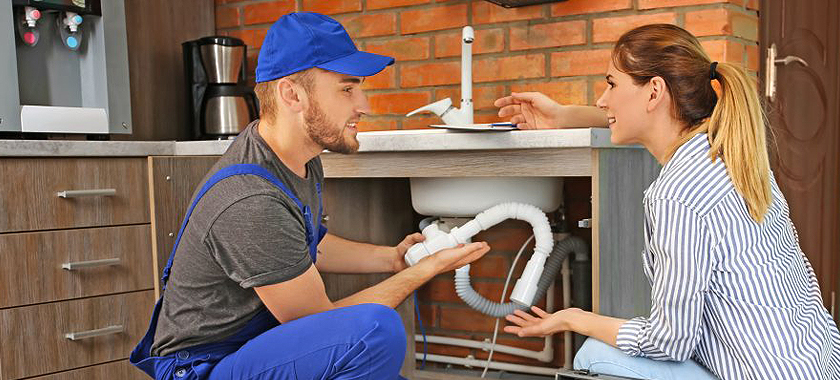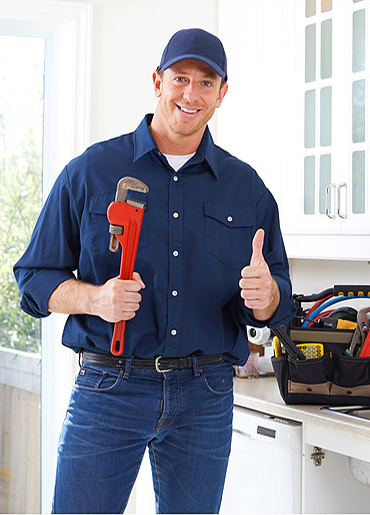Introduction
When you think about home maintenance, plumbing is often one of the most critical components. Whether it's a leaky faucet or a major pipe burst, understanding plumbing expenses can save you a lot of stress and money. In this comprehensive guide titled "From Hourly Rates to Trip Charges: A Comprehensive Guide to Plumbing Expenses," we're diving deep into what you should know about the costs associated with hiring a plumber.
This article aims to provide clarity on various plumbing charges, helping you make informed decisions when searching for a plumber near me. With multiple factors influencing pricing, it’s essential to know what to expect before the first drop of water hits your floor. So grab a cup of coffee and settle in; we’re about to demystify plumbing expenses!
Understanding Plumbing Costs: A Primer
What Factors Influence Plumbing Costs?
Plumbing costs can vary widely based on several factors:

- Type of Service: Different services (installations, repairs, inspections) come with different price tags. Location: Urban areas may have higher labor costs than rural settings. Complexity of the Job: More complicated jobs require more time and skill, increasing the cost. Time of Day: Emergency services usually come with added charges.
Why Is Knowing Plumbing Costs Important?
Being aware of what drives plumbing expenses can help you budget effectively. It's easier to choose between options if you understand what's fair and reasonable.
From Hourly Rates to Trip Charges: Understanding Pricing Structures
What Are Hourly Rates?
Most plumbers charge an hourly rate for their services.
- Typical Range: The average hourly rate ranges from $45 to $200 depending on location and expertise. Inclusions: This fee generally covers labor but may not include materials.
Understanding Trip Charges
Trip charges are fees that cover the plumber's travel time and fuel costs.
- Typical Range: These fees typically range from $50 to $100. When Are They Applied? Trip charges usually apply whether or not any work is done during that visit.
Different Types of Plumbing Services and Their Costs
Emergency Plumbing Services
What Constitutes an Emergency?
An emergency might include:
- Burst pipes Overflowing toilets Major leaks
Cost Implications
Expect to pay 1.5x to 2x your standard hourly rate for emergencies, plus trip charges.
Routine Maintenance Services
Routine checks can prevent bigger problems down the line.
What’s Included?
Services like drain cleaning or routine inspections typically cost between $100 and $300.
Comparative Pricing: National vs. Local Trends
National Average Costs
According to national averages:


| Service Type | Average Cost | |----------------------------|----------------| | Routine Repairs | $150 - $450 | | Emergency Repairs | $200 - $600 | | Installations | $300 - $1,500 |
Local Variations
Prices may differ in urban vs. rural settings due to demand and labor availability.
Common Plumbing Issues: Cost Breakdown
Leaky Faucets
What’s It Gonna Cost Me?
Fixing a leaky faucet typically costs around $100-$200, depending on parts needed.
Clogged Drains
How Much Should I Expect?
Clearing a clogged drain usually runs between $150-$250 for emergency plumbing professional service.
Materials vs. Labor Costs in Plumbing Services
How Are Material Costs Determined?
Material costs can vary based on quality and type:
- Copper pipes are more expensive than PVC.
Labor Costs Explained
Labor often constitutes about 70% of your total bill; hence understanding how plumbers calculate these fees is vital.
FAQs About Plumbing Expenses
Q1: How much should I budget for basic plumbing repairs?
A1: Generally, budgeting around $150-$500 should cover most minor repairs comfortably.
Q2: Do all plumbers charge trip fees?
A2: Not all plumbers do; some might integrate trip fees into their overall rates.
Q3: Can I get an estimate over the phone?
A3: Yes, many plumbers offer rough estimates over the phone but may need an in-person inspection for accurate quotes.
Q4: Are there additional fees for after-hours calls?
A4: Yes, emergency services can cost significantly more during off-hours or weekends.
Q5: What's included in my bill aside from labor?
A5: Your bill may include materials used, trip charges, taxes, and sometimes disposal fees for old parts.
Q6: How can I find an affordable plumber near me?
A6: Online reviews and word-of-mouth recommendations are excellent ways to find trustworthy local plumbers at reasonable rates.
Conclusion
Navigating through plumbing expenses doesn’t have to be daunting. By understanding various aspects—from hourly rates to trip charges—you empower yourself as a homeowner. Remember that being informed will enable you not only to understand your bills better but also aid in communicating effectively with your plumber.
So next time you're faced with a dripping faucet or an overflowing toilet, you'll know exactly what questions to ask when searching for a reliable plumber near me!
As we’ve explored in From Hourly Rates to Trip Charges: A Comprehensive Guide to Plumbing Expenses, being proactive about understanding these costs will ultimately save you both time and money down the line!